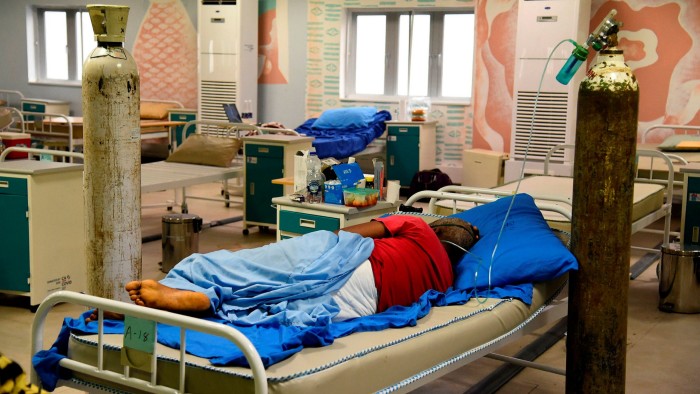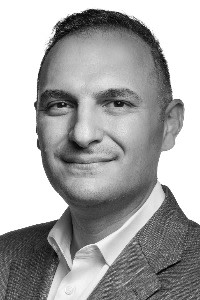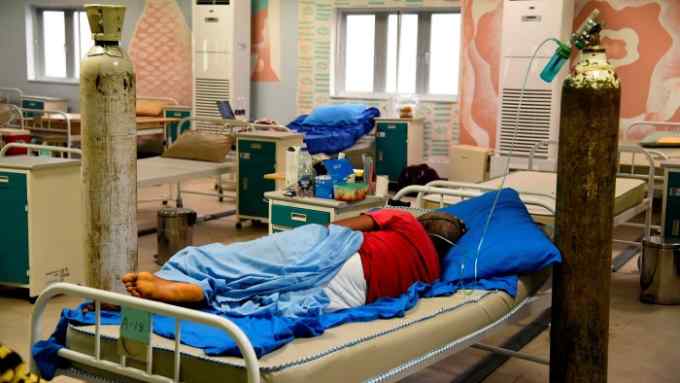How to bridge the digital divide in healthcare

Roula Khalaf, Editor of the FT, selects her favourite stories in this weekly newsletter.
While digital transformation has undoubtedly changed the world for the better, the benefits of digital tools in healthcare have not always reached those most in need — a disparity that has been exacerbated by the Covid-19 pandemic.
To improve outcomes and expand access to care, we need more than a new tool or data set. We need a paradigm shift that addresses the systemic problems hindering the power of digital tools to improve access to healthcare in low- and middle-income countries.
Key to this is societal trust, which can be fostered by balancing the power between countries of the northern and southern hemispheres better on issues such as data sharing — and ensuring that products developed in the north are affordable and applicable in the south.
A large gap exists between the research and development of cutting-edge digital tools and the availability of these products in low- and middle-income countries. Although many organisations in rich countries are funded to develop and evaluate the use of digital tools, there are few that use human-centred design to ensure these products benefit poorer nations.
Through partners in India and Nigeria, the Bill & Melinda Gates Foundation is getting involved in education programmes to upskill workers in areas such as data literacy and cloud computing.
The foundation is sponsoring open data challenges, improving access to funding for research and encouraging more private sector investment in digital health innovation in the global south.
Some 97 per cent of newly committed grants through the Foundation’s Global Partnerships and Grand Challenges initiatives go directly to researchers in low- and middle-income countries, compared with 49 per cent a few years ago.
It is critical to reach agreement on health data governance and interoperability standards for sharing such data. Promisingly, there has been some early success, with the development of Fast Healthcare Interoperability Resources to define standards for data exchange between different health systems.
More stories from this report
Pandemic-led healthcare advances raise ethical and political hurdles
Rise of tracing apps highlights threats to civil liberties
Three ways to ensure health tech innovation benefits all
Are data trusts a suitable stewardship model for the developing world?
Big Tech jockeys for position in scramble for health data primacy
The dark side of digital devices for children and how to beat it
The World Health Organization has been working with app developers and tech companies to apply these standards to community health work practice for all member countries. This can help improve health delivery to patients, and, with greater deployment, will be the basis for a more accessible health system.
But data alone will not improve health outcomes in underserved communities. Even if robust data standards were in place today, the flow of data would still go from low- and middle-income countries to high-income countries to perform the necessary machine-learning tasks.
Investment is needed in a different type of digital architecture that supports responsible health data sharing. In many parts of the world, the overwhelming focus has been on health data security rather than ensuring data privacy. But, by building castle-keeps of localised, centralised health data, the opportunity is missed to pool larger volumes of information securely for the public good.
The Lancet & Financial Times Commission on Governing Health Futures 2030 calls for “data institutions” that can act as fiduciaries for individuals’ health data. As the global community works towards the goal of making universal, affordable, safe and meaningful connectivity a human right and public good by 2030, a key element will be developing the technical infrastructure to support different layers of data governance and control.
The International Digital Health & AI Research Collaborative (I-Dair) has developed a set of research hubs focused on inclusive data and artificial intelligence research. These hubs will reflect local views on data governance requirements as AI tools are developed.
Efforts to build real-time epidemiology maps with recommendations for public health action will inform this approach. This local-regional strategy can be more effective and efficient than a single monolithic solution.

Using digital tools is the most effective way of reducing barriers to high-quality healthcare access globally. To address this, the global community should focus on the incentives for individuals, health systems and public and private actors to share data and ensure innovative digital health tools can reach everyone.
Virtual care models have already been shown to increase disclosure of HIV infection, potentially by offering discretion around a societal stigma. Treatment for malaria can be more appropriately dispensed over the counter by using a rapid diagnostic test. Reducing the demands these services place on health workers will reduce absenteeism and improve data collection.
With the right tools and governance, there is enormous scope to empower the communities that will benefit most from innovations in digital health.
Andrew Trister is deputy director of digital health and artificial intelligence at the Bill & Melinda Gates Foundation

Comments